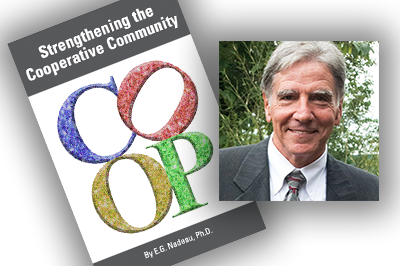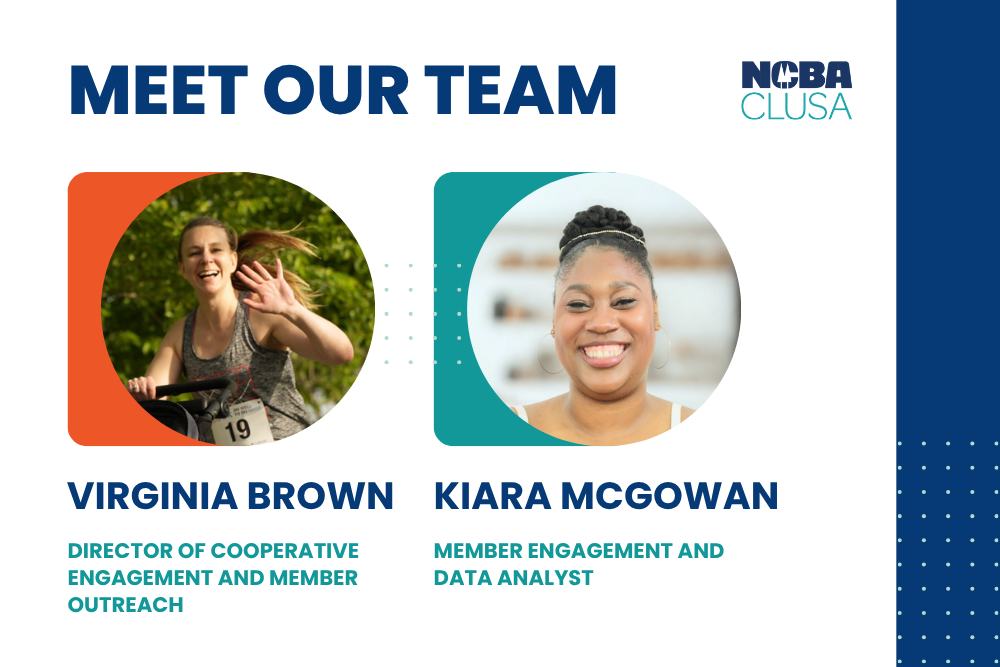
A new book by author E.G. Nadeau, Ph.D. draws on the veteran cooperator’s 50 years of experience in researching, developing, teaching and writing about what makes cooperative businesses succeed or fail, and how co-ops can become a more dynamic force for positive change in the 21st century.
Released this month by the Cooperative Society Project, Strengthening the Cooperative Community provides insights into how member-owned, democratically controlled cooperatives can be part of the solution to creating a more inclusive and equitable society.
The book begins with historical perspective and lessons learned during Nadeau’s experience as a co-op researcher and developer of dozens of projects in North America, Europe, Africa and Asia. It goes on to explore six building blocks critical to successful co-op development, then presents current opportunities for cooperative development that have the potential to create jobs, a more sustainable environment and services for hundreds of millions of new co-op members and employees. Nadeau closes his book by proposing 16 specific, practical recommendations co-ops can take to spur positive change.
“Too often, people are passive about the world around them. They feel the world acting on them, but they’re not actively changing it,” Nadeau said. “The most important theme of this book is that we can change the world in a positive way—and one of the best ways to do that is by working together through cooperatives.”
“We can change the world in a positive way—and one of the best ways to do that is by working together through cooperatives.” – E.G. Nadeau
Nadeau began his work with cooperatives as a Peace Corps volunteer in Senegal in 1970. In 1985, he was the founding director of Cooperative Development Services, a pioneering co-op development organization that today continues to empower communities and create just economies through cooperation. Since then, his domestic and international co-op consulting work has spanned organizations including NCBA CLUSA, Land O’ Lakes, the U.S. Overseas Cooperative Development Council and more. Nadeau also served as a faculty member of the Master of Management, Cooperatives and Credit Unions program at Saint Mary’s University in Halifax from 2004-2013.
As the cooperative movement collectively reflects on its co-op identity in 2021 (both the International Cooperative Alliance’s World Cooperative Congress and NCBA CLUSA’s Cooperative IMPACT Conference will highlight this theme), Nadeau believes there is an opportunity to act on that deepened understanding, leveraging it to jumpstart the next phase of cooperative development—one that is “coordinated, strategic and at scale.”
While co-ops have historically—and out of necessity—“filled the gaps” where for-profit businesses and governments failed to meet people’s needs, now is the time for the movement to “think entrepreneurially,” Nadeau said. “I argue that in our current century, we should think proactively about solutions and really look for those opportunities where needs can be met creatively by cooperatives.”
Martin Lowery, Executive Vice President Emeritus of the National Rural Electric Cooperative Association (NRECA), said he hopes cooperative leadership at the global, national and local levels give “serious consideration” to the 16 recommendations in Nadeau’s book. “Strengthening the Cooperative Community should be required reading for anyone who believes that the future of the globe may be dependent on cooperative thinking and action,” Lowery said.
“[This book] should be required reading for anyone who believes that the future of the globe may be dependent on cooperative thinking and action.” – Martin Lowery, NRECA
Strengthening the Cooperative Community is available at local bookstores, Amazon or thecooperativesociety.org.


